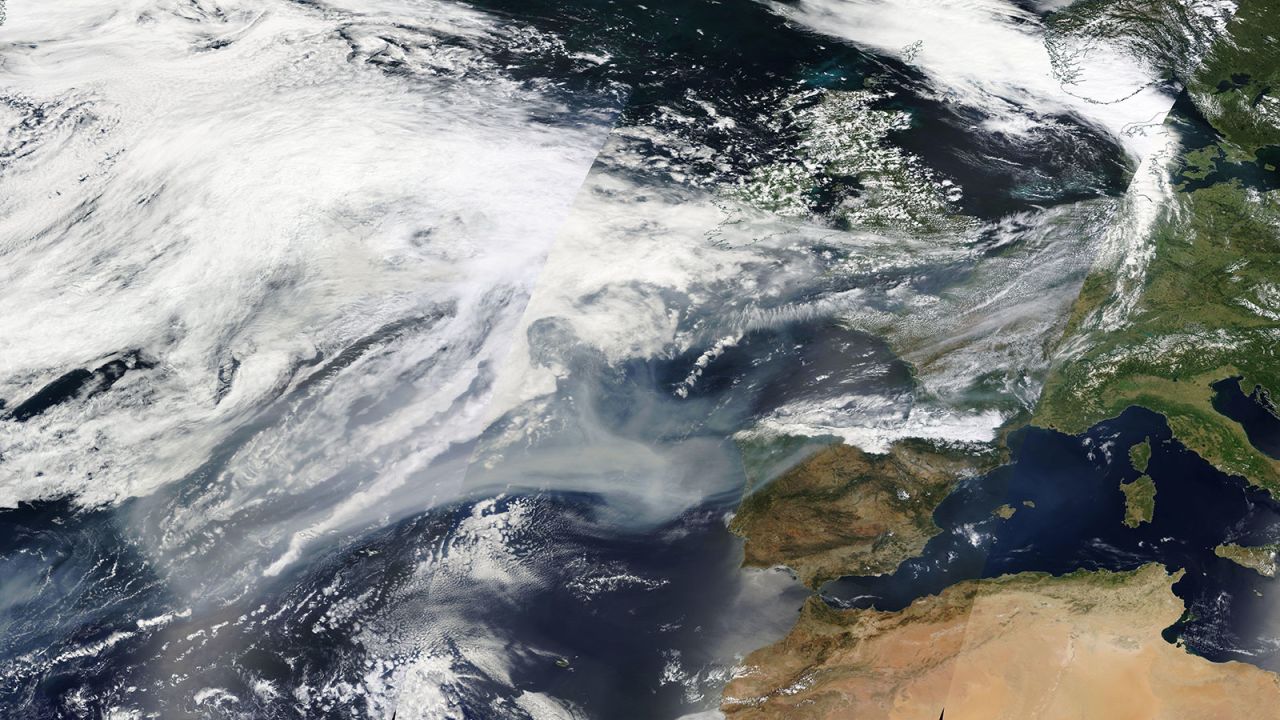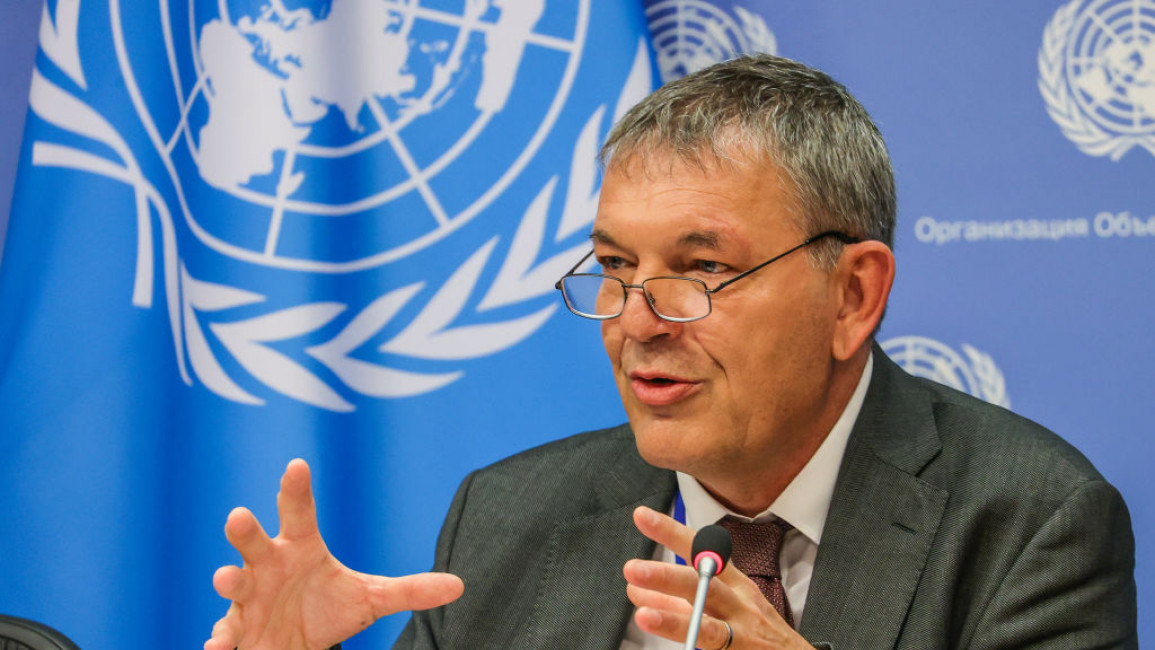
Radical Decentralization Was The Key To West’s Rise To Wealth And Freedom – OpEd
By MISES
By Ryan McMaken
It is not uncommon to encounter political theorists and pundits who insist that political centralization is a boon to economic growth. In both cases, it is claimed the presence of a unifying central regime—whether in Brussels or in Washington, DC, for example—is essential in ensuring the efficient and free flow of goods throughout a large jurisdiction. This, we are told, will greatly accelerate economic growth.
In many ways, the model is the United States, inside of which there are virtually no barriers to trade or migration at all between member states. In the EU, barriers have been falling in recent decades.
The historical evidence, however, suggests that political unity is not actually a catalyst to economic growth or innovation over the long term. In fact, the European experience suggests that the opposite is true.
Why Did Europe Surpass China in Wealth and Growth?
A thousand years ago, a visitor from another planet might have easily overlooked Europe as a poor backwater. Instead, China and the Islamic world may have looked far more likely to be the world leaders in wealth and innovation indefinitely.
Why is it, then, that Europe became the wealthiest and most technologically advanced civilization in the world?
Indeed, the fact that Europe had grown to surpass other civilizations that were once more scientifically and technologically advanced had become apparent by the nineteenth century. Historians have debated the question of the origins of this “European miracle” ever since. This “miracle,” historian Ralph Raico tells us:
consists in a simple but momentous fact: It was in Europe—and the extensions of Europe, above all, America—that human beings first achieved per capita economic growth over a long period of time. In this way, European society eluded the “Malthusian trap,” enabling new tens of millions to survive and the population as a whole to escape the hopeless misery that had been the lot of the great mass of the human race in earlier times. The question is: why Europe?1
Across the spectrum of historians, theories about Europe’s economic development have been varied, to say the least.2 But one of the most important characteristics of European civilization—ever since the collapse of the Western Roman Empire—has been Europe’s political decentralization.
Raico continues:
Although geographical factors played a role, the key to western development is to be found in the fact that, while Europe constituted a single civilization—Latin Christendom—it was at the same time radically decentralized. In contrast to other cultures—especially China, India, and the Islamic world—Europe comprised a system of divided and, hence, competing powers and jurisdictions.3
Although modern EU centralizers are attempting it, at no point has European civilization ever fallen under the dominion of a single state as has been the case in China. Even during the early modern period, as some polities managed to form absolutist states, much of Europe—such as the highly dynamic areas in the Low Countries, Northern Italy, and the German cities—remained in flux and highly decentralized. The rise of the merchant classes, banking, and an urban middle class—which began as early as the Middle Ages and were so essential in building industrial Europe—thrived without large states.
After all, while a large polity with few internal borders can indeed lead to large markets with fewer transaction costs, concentrating power in one place brings big risks; a state that can facilitate trade across a large empire is also a state that can stifle trade through regulation, taxation, and even expropriation.
The former vast kingdoms and empires of Asia may have once been well positioned to foster the creation of a wealthy merchant class and middle class. But the fact is this didn’t happen. Those states instead focused on stifling threats to state power, centralizing political control of markets, and extorting the public through the imposition of fines and penalties on those who were disfavored by the ruling classes.
The Benefits of Anarchy
In contrast, Europe was relatively anarchic compared to other world civilizations and became the home of the great economic leap forward that we now take for granted. This isn’t “anarchy” in the sense of “chaos,” of course. This is anarchy as understood by political scientists: the lack of any single controlling state or authority. In key periods of the continent’s development—as now—there was no ruler of “Europe” and no European empire. Thus, in his book The Origins of Capitalism, historian Jean Baechler concludes:
The first condition for the maximization of economic efficiency is the liberation of civil society with respect to the state….The expansion of capitalism owes its origins and raison d’être to political anarchy. (emphasis in original)4
For many years, economic historians have attempted to find correlations between this political anarchy and Europe’s economic success. Many have found the connection to be undeniable. Economist Douglass North, for instance, writes:
The failures of the most likely candidates, China and Islam, point the direction of our inquiry. Centralized political control limits the options—limits the alternatives that will be pursued in a context of uncertainty about the long-run consequences of political and economic decisions. It was precisely the lack of large scale political and economic order that created the environment essential to economic growth and ultimately human freedoms. In the competitive decentralized environment lots of alternatives were pursued; some worked, as in the Netherlands and England; some failed as in the case of Spain and Portugal; and some, such as France, fell in between these two extremes.5
Competition among Governments Means More Freedom
But why exactly does this sort of radical decentralization “limit the options” for ruling princes and kings? Freedom increases because under a decentralized system there are more “alternatives”—to use North’s term—available to those seeking to avoid what E.L. Jones calls “predatory government tax behavior.” Thus, historian David Landes emphasized the importance of “multiple, competing polities” in Europe in setting the stage for:
private enterprise in the West possess[ing] a social and political vitality without precedent or counterpart. This varied, needless to say, from one part of Europe to another.…And sometimes adventitious events like war or a change of sovereign produced a major alteration in the circumstances of the business classes. On balance, however, the place of private enterprise was secure and improving with time; and this is apparent in the institutional arrangements that governed the getting and spending of wealth.6
It was this “latent competition between states,” Jones contends, that drove individual polities to pursue policies designed to attract capital.7 More competent princes and kings adopted policies that led to economic prosperity in neighboring polities, and thus “freedom of movement among the nation-states offered opportunities for ‘ best practices’ to diffuse in many spheres, not least the economic.” Since European states were relatively small and weak—yet culturally similar to many neighboring jurisdictions—abuses of power by the ruling classes led to declines in both revenue and in the most valuable residents. Rulers sought to counter this by guaranteeing protections for private property.
This doesn’t mean there were never abuses of power, of course, but as Landes observed:
To be sure, kings could, and did, make or break men of business; but the power of the sovereign was constrained by the requirements of states…and international competition. Capitalists could take their wealth and enterprise elsewhere and even if they could not leave, the capitalists of other realms would not be slow to profit from their discomfiture.8
Nor was decentralization limited to the international system of separate sovereign states. Thanks to the longtime tug-of-war between the state and the church, and between kings and nobles, decentralization was common even within polities. Raico continues:
Decentralization of power also came to mark the domestic arrangements of the various European polities. Here feudalism—which produced a nobility rooted in feudal right rather than in state-service—is thought by a number of scholars to have played an essential role….Through the struggle for power within the realms, representative bodies came into being, and princes often found their hands tied by the charters of rights (Magna Carta, for instance) which they were forced to grant their subjects. In the end, even within the relatively small states of Europe, power was dispersed among estates, orders, chartered towns, religious communities, corps, universities, etc., each with its own guaranteed liberties.9
Over the long term, however, it was the system of international anarchy that appears to have ensured that states were constrained in their ability to tax and extort the merchant classes and middle classes, who were such a key component of Europe’s rising economic fortunes.10
We Need a Return to Smaller Polities
Even today, we continue to see these factors at work. Small states—especially in Europe and the Americas—tend to have higher incomes and have greater openness. We can see this in the microstates of Europe and in the Caribbean. Small states, seeking to attract capital, often undercut larger neighbors in terms of taxes.
It is true that one of the most economically successful polities in the world today is a large one: the United States. The US’s success, however, can be attributed to the enduring presence of political decentralization internally—especially during the nineteenth century—and to the latent, albeit receding, economic liberalism esteemed by much of its population. Europe, of course, was already rich—and relatively politically free compared to the despotic regimes of the East—long before it began to centralize political power under the banner of the European Union.
Today, however, we are seeing the impoverishing downside of decades of political centralization in both the US and Europe. Government regulations decreed from Brussels and Washington continue to stifle innovation and entrepreneurship. The EU has sought to crack down on low taxes in smaller member states. Both the EU and the US are erecting trade barriers to producers outside their trading blocs.
Unfortunately, those in power, who benefit from the status quo and from holding the reins of large states, are unlikely to relinquish this newly gained power without a fight.
*About the author: Ryan McMaken (@ryanmcmaken) is executive editor at the Mises Institute. Send him your article submissions for the Mises Wire and Power and Market, but read article guidelines first. Ryan has a bachelor’s degree in economics and a master’s degree in public policy and international relations from the University of Colorado. He was a housing economist for the State of Colorado. He is the author of Breaking Away: The Case of Secession, Radical Decentralization, and Smaller Polities and Commie Cowboys: The Bourgeoisie and the Nation-State in the Western Genre.
Source: This article was published by the MISES Institute. This article is Chapter 2 of Breaking Away: The Case for Secession, Radical Decentralization, and Smaller Polities. Now available at Amazon and in the Mises Store.
- 1.Ralph Raico, “The Theory of Economic Development and the ‘European Miracle’,” in The Collapse of Development Planning, ed. Peter Boettke (New York: New York University Press, 1994), p. 39.
- 2.Chiu Yu Ko, Mark Koyama, and Tuan-Hwee Sng, for example, contend China was forced to centralize due to threats from the Eurasian steppe. (See Chiu Yu Ko, Mark Koyama, Tuan-Hwee Sng, “Unified China and Divided Europe,” EH.net, June 2014, http://eh.net/eha/wp-content/uploads/ 2014/05/Koyama.pdf.
- 3.Raico, “The Theory of Economic Development and the ‘European Miracle’,” p. 41.
- 4.Jean Baechler, The Origins of Capitalism (Oxford, U.K.: Basil Blackwell, 1975), pp. 77, 113. Baechler influenced F.A. Hayek in his thinking as well. Hayek quotes this passage in Baechler on “political anarchy” in volume 3 of Law, Legislation and Liberty. See F.A. Hayek, Law, Legislation, and Liberty, vol. 3 (Chicago: University of Chicago Press, 1979). Hayek also writes in The Fatal Conceit: “…the history of China provides many instances of government attempts to enforce so perfect an order that innovation became impossible. This country, technologically and scientifically developed so far ahead of Europe that, to give only one illustration, it had ten oil wells operating on one stretch of the river Po already in the twelfth century, certainly owed its later stagnation, but not its early progress, to the manipulatory power of its governments. What led the greatly advanced civilisation of China to fall behind Europe was its government’s clamping down so tightly as to leave no room for new developments, while, as remarked in the last chapter, Europe probably owes its extraordinary expansion in the Middle Ages to its political anarchy.” F.A. Hayek, The Fatal Conceit: The Errors of Socialism, ed. W.W. Barley, III (London: Routledge, 1988), p. 44.
- 5.Douglass North, “The Paradox of the West,” in The Origins of Modern Freedom in the West, ed. R.W. Davis (Stanford, Calif.: Stanford University Press, 1995).
- 6.David Landes, The Unbound Prometheus: Technological Change and Industrial Development in Western Europe from 1750 to the Present (Cambridge, U.K.: Cambridge University Press, 1969), p. 15.
- 7.E.L. Jones, The European Miracle: Environments, Economies and Geopolitics in the History of Europe and Asia (Cambridge, U.K.: Cambridge University Press, 2003), p. 118.
- 8.Landes, The Unbound Prometheus, p. 15.
- 9.Raico, p. 42. It is important to note Raico does not treat Latin Christendom’s “radical decentralization” as something that “just happened.” That is, I think Andrei Znamenski is reading Raico incorrectly when Znamenski states the framework which stresses the “role of political fragmentation and decentralization as the major factor that allowed Europe to spread its economic wings” is “a well-taken and well-supported one,” but concludes “it leaves unanswered the simple question of how the fragmentation and decentralization came into existence in the first place.” Raico does address this by noting it was specifically Western Europe, which was the most economically successful and non-coincidentally existed under the Latin Church’s opposition to any single civil government becoming the ultimate civil power in Europe. See Andrei Znamenski, “The ‘European Miracle’ Warrior Aristocrats, Spirit of Liberty, and Competitionas a Discovery Process,” The Independent Review 16, no. 4 (Spring 2012).
- 10.The importance of decentralization within states cannot be ignored, of course. As historian Joel Mokyr notes in “The Enduring Riddle of the European Miracle: The Enlightenment and the Industrial Revolution” (2002), the rise of political and economic liberalism (which he calls “the Enlightenment”) was key in weakening states in their ability to enrich entrenched rent seeking interests at the expense of market producers. This, however, does not undermine our theory of decentralization since decentralization is a key component in sustaining and laying the groundwork necessary for ideological liberalism to thrive. See Joel Mokyr, “The Enduring Riddle of the European Miracle: The Enlightenment and the Industrial Revolution,” October 2002, http://citeseerx.ist.psu.edu/viewdoc/download?doi=10.1.1.477.6576&rep=rep1&type=pdf.
MISES
The Mises Institute, founded in 1982, teaches the scholarship of Austrian economics, freedom, and peace. The liberal intellectual tradition of Ludwig von Mises (1881-1973) and Murray N. Rothbard (1926-1995) guides us. Accordingly, the Mises Institute seeks a profound and radical shift in the intellectual climate: away from statism and toward a private property order. The Mises Institute encourages critical historical research, and stands against political correctness.






